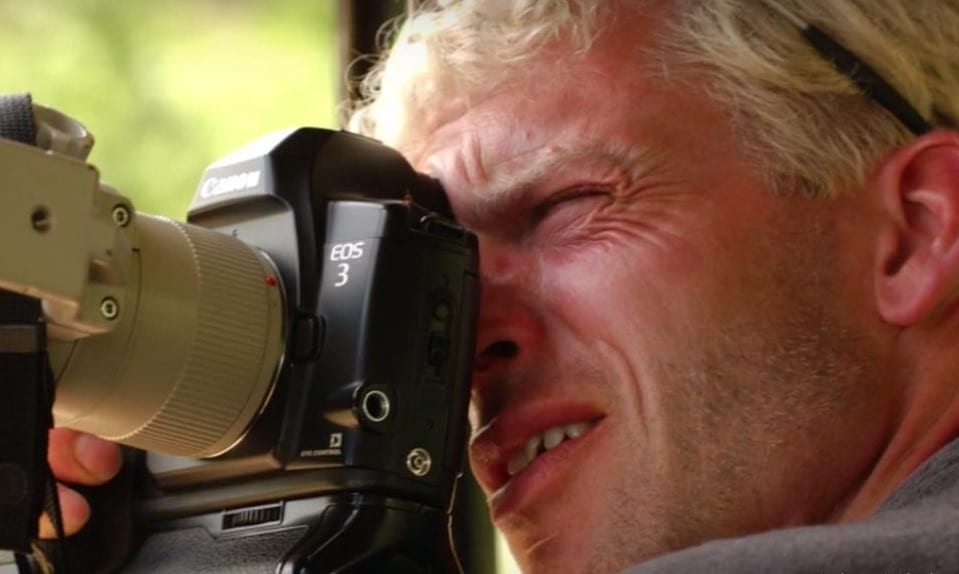Our five-year-old great-grandson, Yitzchok Yankele of Yerushalayim, is a budding philosopher. Typically, he lies awake at night contemplating life. On one occasion, he emerged from his bedroom and asked his mother if it was true that one can see Hashem best in the dark. Yankele’s question was in fact very insightful. It is precisely in the “dark,” in times of challenge and adversity that we seek to connect with our Heavenly Father in greater measure. When we are down and out and find ourselves tottering on the edge, we tend to look toward our Source. A wonderful story is told about Reb Meir of Premishlan, one of the foremost chasidic luminaries, whose yahrzeit was recently commemorated on 29 Iyar. Reb Meir, even at an advanced age, would awaken before dawn and make his way up a steep hill to a stream in which he immersed himself before davening. A group of antiSemitic hooligans, aware of Reb Meir’s daily trek, conspired to hurt him and devised a plan: The following morning they would trail the Rebbe and attack him in a secluded area. As planned, they arose early and began to quietly stalk their prey. As they followed him up the hill, however, they found themselves tripping and falling, unable to navigate the rough terrain. Battered and bruised, they waited for the Rebbe to come down, and in reverent disbelief revealed to him their foiled plot, wondering aloud how it was that they, who were young and spry, could not manage what he, an old man, accomplished so effortlessly. His response was simple and profound: “When one is firmly connected Above, one does not fall down below.” Connection to Hashem is what gets us through the dark, cold nights and bumpy roads of life.
The knowledge that Hashem is holding our hand throughout the journey gives us the strength to forge ahead.I often think of my friend Barbara, a”h, who was stricken with a terminal illness at the young age of 36. When I first met her, she looked like the poster girl for the American dream. She was beautiful, bright, well-educated and financially successful. The doctors who diagnosed her gave her six months to live. With determination and Hashem’s will, Barbara defied their predictions and lived for 18 vigorous years. The last time I saw her she radiated joy and gratitude, and her words to me were a real eye-opener, expressing an attitude I have since encountered among many who have chosen to connect to Hashem “in the dark.” For the first 36 years of her life, she explained, she had lived on the fast track, caught up in illusory, superficial frivolities. Then a giant shadow crossed her path. Barbara understood that G-d, through the agency of a serious illness, had placed an impediment before her, forcing her to pause and look for purpose and meaning in her existence. Barbara had not been a religious person as such, but she embarked on a more spiritual path. She became a person, she acknowledged, that she never would have become otherwise. Individually and collectively we struggle with the human condition. The challenge of many in our affluent society is “Vayishman Yeshurun vayivat—When the people of Israel become fat with good fortune they kick [become rebellious]” (Devarim 32:15). Good fortune doesn’t always work for us; it sometimes causes us to lose sight of the goals that are our raisons d’être, the reason for which we were created. A secular observer of history noted that “the Jews have demonstrated that they can survive persecution.
The question is, can they survive freedom?” Counterintuitive as it may seem, it was during the darkest nights of galus that we produced our greatest works. A prominent example is the Babylonian Talmud, the Talmud Bavli, the monumental record of all of the legal and moral precedents, arguments and discussions that have served as the source for Jewish ethical and religious conduct over the last two millennia. This epic achievement unfolded over a period of four centuries in a hostile context of oppression and persecution. This confirms the truism that when the physical and the material realms wane, the spiritual realm waxes. History has amply demonstrated that the reverse is also true. When Jews become overly comfortable, assimilation and alienation set in. As we survey the landscape of klal Yisrael at present, it is hard to escape the feeling that our nation is worn out, depleted and disheartened by so long and extended a dark night. Jews everywhere are desperately awaiting the dawn of the Messianic era. There are many suggestions as to what might hasten the process of redemption. Consider the following powerful metaphor presented by my husband: Two yeshivah boys far from home both receive packages of home-baked cookies from their mothers.
The first youngster opens his package and sinks his teeth into the chewy, delectable chocolate chips and gets lost in the flavor, commenting to his friend that no one in the world can match the taste of his mother’s cookies. The second boy opens his package and is overcome by a deep longing for his beloved mother, whom he can see in his mind’s eye puttering about the kitchen and painstakingly shaping each cookie, investing it with love and caring for her child. With the first student, the cookie is the focus. For the second, it is the relationship he has with his mother. The Almighty offers us many “cookies”— a world filled with beauty and opportunities of all kinds. Too many of us get lost in the “fat” that causes our people to “kick,” to become so bloated that our G-dly objective is obscured. Perhaps if in every gift we are offered we could see the loving hand of our benevolent Parent and reconnect with Him, the geulah would finally be in sight. Yankele’s observation that Hashem can better be seen in the dark is undeniable. Let us therefore prove to the Ribbono Shel Olam, with our efforts towards mindfulness, awareness and focus, that we can discern His love and presence in our midst. Convinced of our ability to see Him in the daylight, He will banish the “darkness of night” forever, speedily in our days.




